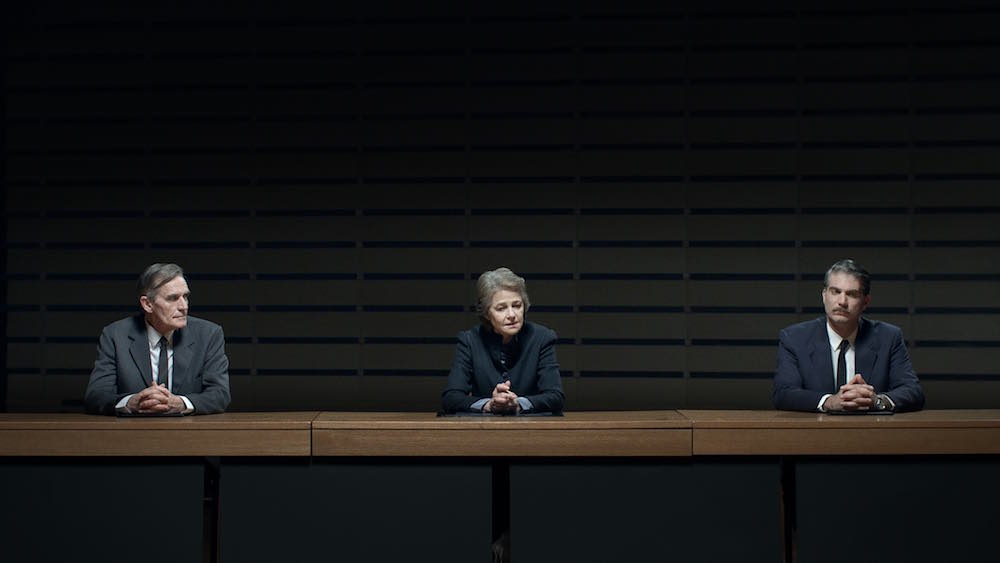ArtReview sent a questionnaire to artists and curators exhibiting in and curating the various national pavilions of the 2017 Venice Biennale, the responses to which will be published daily in the lead-up to the Venice Biennale opening (13 May – 26 November).
George Drivas is representing Greece with the installation Laboratory of Dilemmas. The Greek pavilion is in the Giardini.
What can you tell us about your exhibition plans for Venice?
My work Laboratory of Dilemmas is a narrative sound and video installation – based on Aeschylus’ theatre play Iketides (The Suppliant Women), which poses a dilemma between saving the Foreigner and maintaining the safety of the Native. The work deals with the anguish, puzzlement, and confusion of individuals and social groups when called upon to address similar issues.
Laboratory of Dilemmas focuses on the play’s main question through the excerpts of a documentary about a biology experiment. This experiment was never completed for unknown reasons, however the documentary reveals details of its stages, as well as the hopes of the professor who envisioned it, the dilemma he faced and the disagreements with his co-researchers. The story is presented piecemeal through multiple video and sound sources inside a Labyrinth.
How is making a show for the Venice Biennale different to preparing a ‘normal’ exhibition? Or another biennial?
Making a show for the Venice Biennale was a challenge in a lot of ways. It is definitely very different from preparing a ‘normal’ exhibition. Some of these differences have to do with pure logistics and technical difficulties and some others with the meaning and the function of an artwork in the context of a national pavilion. Both issues raised intriguing questions about the role and the appearance of my work. It was a very interesting and creative challenge.
There are a huge number of biennial exhibitions across the world nowadays. Do you think the Venice Biennale still has a special status, and why?
Apart from its scale and its reputation, the special status of the Venice Biennale lies also in the fact that it continues the old tradition of national representation. I don’t see this necessarily as an opportunity for each country to present every two years one or more of its best artists, but as a chance for the creation of an international dialogue. I see the Venice Biennale as an international platform of coexistence and neighbouring and not as just a huge collection of national representations. Maybe it’s the best opportunity to ask ourselves: how we can be national and international at the same time? How we can use our national characteristics to come closer, discuss, exchange ideas and try to make this world a better place for everybody?
What does it mean to ‘represent’ your country? Do you find it an honour or is it problematic?
Being selected by a highly respected jury in my country, I feel a special responsibility and an honour. On the other side, national representation might be problematic, if it is interpreted as just a way to speak about one nation only. Laboratory of Dilemmas is not about Greece, it’s about every country, it’s a message that I wanted to send from today’s Greece to the rest of the world. It raises a question about the possibility of a shared vision on an international scale. It calls upon discovering our common universal values. What is that we believe in, the hero of my work wonders in the end of the installation. What kind of societies do we want to have? To ‘represent’ a country means for me to use this opportunity in Venice, in order to express a message that goes beyond your borders – as an artist, as a country and as a human being.
The Venice audience is a diverse group. Who is most important to you? The artist peers, the gallerists, curators and critics concentrated around the opening, or the general public which visits in the months that follow?
There is not an important and a less important audience. Of course it is important if the work gets the attention of the ‘insiders’, people who know and eventually share the same language or hopefully the same interests with the artist. That doesn’t exclude of course the less ‘specialised’ audience, which by the way, very often gives me the most interesting, unexpected and thought-provoking reactions.
Did you visit the last Venice Biennale? What’s your earliest or best memory from Venice?
I have visited Venice many times and the last Biennale as well. One of my best memories is from last January. Venice was humid, foggy and relatively empty of tourists. In the evening the city was like a film set. It reminded me of one of my favourite films shot in Venice, Don’t Look Now by Nicolas Roeg.
How does a having a pavilion in Venice make a difference to the art scene in your home country?
I would say that it is definitely a challenge and an opportunity for every Greek artist. In any case I would be in favour of opening the national pavilions to artists from different nationalities so we could see broader international collaborations. It would be very interesting if, for example, a Greek artist would be presented in the German pavilion and a German artist in the Greek one.
You’ll no doubt be very busy, but what else are you looking forward to seeing?
I am looking forward to seeing all the other pavilions and see what they are presenting this year. It’s always interesting to see the work of artists from different countries who are exhibiting in the same context as you. The Venice Biennale is like a world map. We are all in the same broader context but of course, for better or worse, we share completely different views.
Click here to read all the Venice Questionnaires so far
26 April 2017
